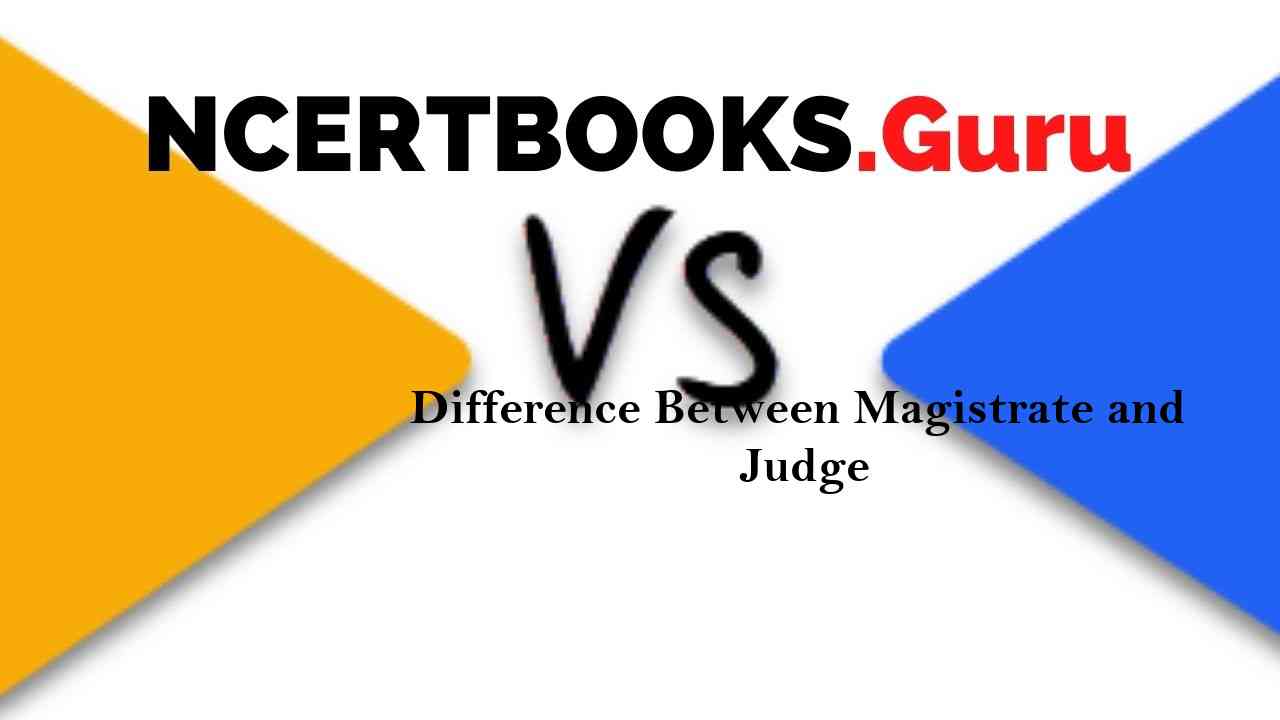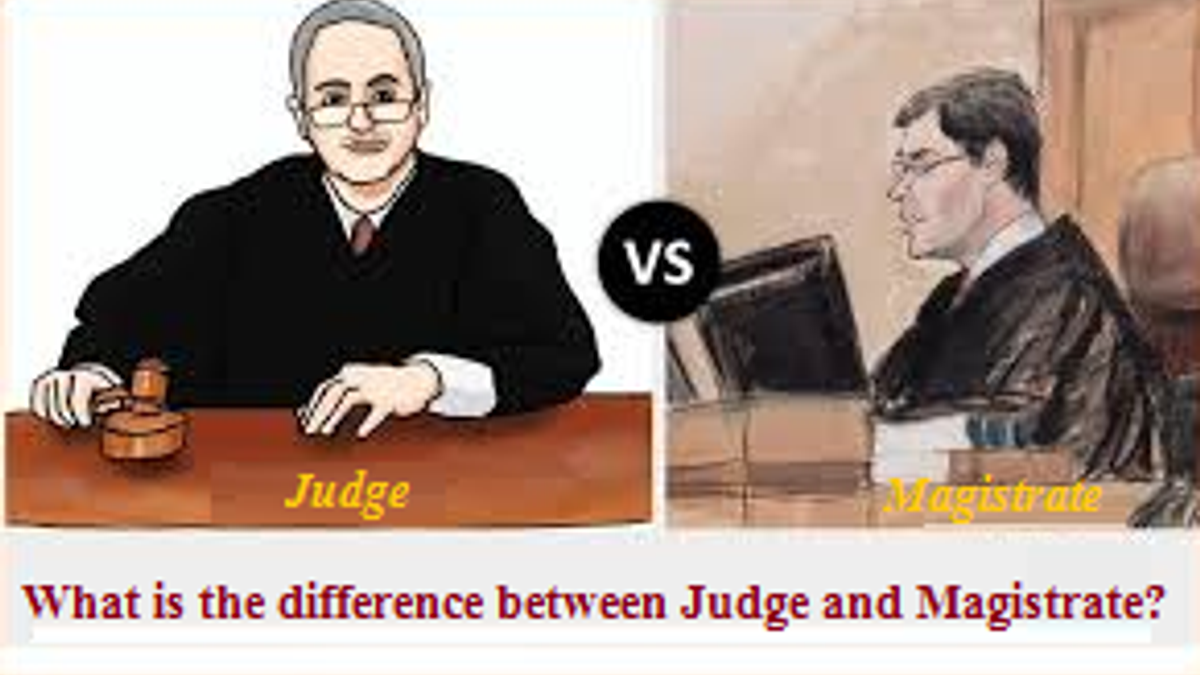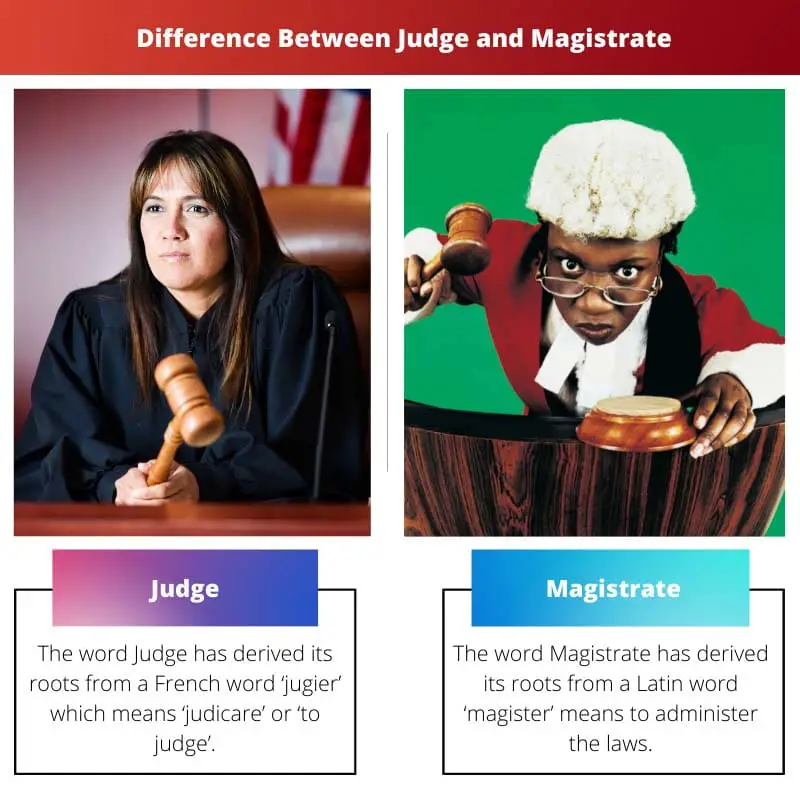What Is The Difference Between A Judge And A Magistrate - Judges have the authority to make final decisions on cases, including rendering judgments, issuing sentences, and granting injunctions. A judge presides over court cases at various levels, making decisions based on law, while a magistrate handles minor legal matters, such as preliminary hearings and small claims,. Judge implies a judicial officer who enforces law in the jurisdiction and appointed to. Magistrate connotes a local judicial officer who is so appointed to administer and enforce law in the jurisdiction. The difference between a judge and a magistrate illustrates that both judges and magistrates serve essential roles in a courtroom. Knowing what's the difference between a. Their decisions are binding and carry significant. A magistrate judge may handle.
Knowing what's the difference between a. The difference between a judge and a magistrate illustrates that both judges and magistrates serve essential roles in a courtroom. A judge presides over court cases at various levels, making decisions based on law, while a magistrate handles minor legal matters, such as preliminary hearings and small claims,. Judges have the authority to make final decisions on cases, including rendering judgments, issuing sentences, and granting injunctions. Magistrate connotes a local judicial officer who is so appointed to administer and enforce law in the jurisdiction. Their decisions are binding and carry significant. A magistrate judge may handle. Judge implies a judicial officer who enforces law in the jurisdiction and appointed to.
A magistrate judge may handle. The difference between a judge and a magistrate illustrates that both judges and magistrates serve essential roles in a courtroom. Knowing what's the difference between a. Their decisions are binding and carry significant. Judge implies a judicial officer who enforces law in the jurisdiction and appointed to. Magistrate connotes a local judicial officer who is so appointed to administer and enforce law in the jurisdiction. A judge presides over court cases at various levels, making decisions based on law, while a magistrate handles minor legal matters, such as preliminary hearings and small claims,. Judges have the authority to make final decisions on cases, including rendering judgments, issuing sentences, and granting injunctions.
Difference between JUDGE and MAGISTRATE The Next Advisor
Magistrate connotes a local judicial officer who is so appointed to administer and enforce law in the jurisdiction. Judges have the authority to make final decisions on cases, including rendering judgments, issuing sentences, and granting injunctions. Their decisions are binding and carry significant. A magistrate judge may handle. Judge implies a judicial officer who enforces law in the jurisdiction and.
Difference between Magistrate and Judge in India & Their Comparisons
Knowing what's the difference between a. Magistrate connotes a local judicial officer who is so appointed to administer and enforce law in the jurisdiction. A magistrate judge may handle. Judge implies a judicial officer who enforces law in the jurisdiction and appointed to. A judge presides over court cases at various levels, making decisions based on law, while a magistrate.
What is the difference Between a judge & a magistrate? in 2022 Judge
Magistrate connotes a local judicial officer who is so appointed to administer and enforce law in the jurisdiction. Judge implies a judicial officer who enforces law in the jurisdiction and appointed to. A judge presides over court cases at various levels, making decisions based on law, while a magistrate handles minor legal matters, such as preliminary hearings and small claims,..
What is the difference between a Judge and a Magistrate? Business
The difference between a judge and a magistrate illustrates that both judges and magistrates serve essential roles in a courtroom. A judge presides over court cases at various levels, making decisions based on law, while a magistrate handles minor legal matters, such as preliminary hearings and small claims,. Their decisions are binding and carry significant. Judges have the authority to.
Difference Between Magistrate and Judge & Their Similarities NCERT Books
Knowing what's the difference between a. A judge presides over court cases at various levels, making decisions based on law, while a magistrate handles minor legal matters, such as preliminary hearings and small claims,. Judge implies a judicial officer who enforces law in the jurisdiction and appointed to. Judges have the authority to make final decisions on cases, including rendering.
What is the difference between Judge and Magistrate?
Judges have the authority to make final decisions on cases, including rendering judgments, issuing sentences, and granting injunctions. Judge implies a judicial officer who enforces law in the jurisdiction and appointed to. A magistrate judge may handle. The difference between a judge and a magistrate illustrates that both judges and magistrates serve essential roles in a courtroom. Knowing what's the.
Difference between judge and magistrate
The difference between a judge and a magistrate illustrates that both judges and magistrates serve essential roles in a courtroom. Judges have the authority to make final decisions on cases, including rendering judgments, issuing sentences, and granting injunctions. Magistrate connotes a local judicial officer who is so appointed to administer and enforce law in the jurisdiction. Their decisions are binding.
Judge vs. Magistrate What's the Difference (With Table)
Their decisions are binding and carry significant. Magistrate connotes a local judicial officer who is so appointed to administer and enforce law in the jurisdiction. A judge presides over court cases at various levels, making decisions based on law, while a magistrate handles minor legal matters, such as preliminary hearings and small claims,. A magistrate judge may handle. Judge implies.
What is the Difference Between Fructose and Fructans
Magistrate connotes a local judicial officer who is so appointed to administer and enforce law in the jurisdiction. Judge implies a judicial officer who enforces law in the jurisdiction and appointed to. Their decisions are binding and carry significant. Knowing what's the difference between a. Judges have the authority to make final decisions on cases, including rendering judgments, issuing sentences,.
Difference Between Judge and Magistrate
Judges have the authority to make final decisions on cases, including rendering judgments, issuing sentences, and granting injunctions. Knowing what's the difference between a. Their decisions are binding and carry significant. A magistrate judge may handle. The difference between a judge and a magistrate illustrates that both judges and magistrates serve essential roles in a courtroom.
Their Decisions Are Binding And Carry Significant.
A magistrate judge may handle. Magistrate connotes a local judicial officer who is so appointed to administer and enforce law in the jurisdiction. A judge presides over court cases at various levels, making decisions based on law, while a magistrate handles minor legal matters, such as preliminary hearings and small claims,. Judges have the authority to make final decisions on cases, including rendering judgments, issuing sentences, and granting injunctions.
Knowing What's The Difference Between A.
The difference between a judge and a magistrate illustrates that both judges and magistrates serve essential roles in a courtroom. Judge implies a judicial officer who enforces law in the jurisdiction and appointed to.









